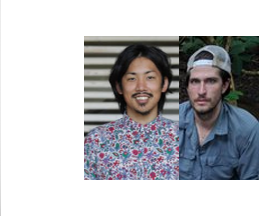CASCB talk: Understanding combined decision making & cultural transmissions through a reinforcement learning framework
Time
Monday, 14. June 2021
11:45 - 12:45
Location
online
Organizer
Centre for the Advanced Study of Collective Behaviour
Speaker:
Wataru Toyokawa, University of Konstanz and Brendan Barrett, Max Planck Institute of Animal Behavior
This event is part of an event series „CASCB Seminar Series“.
Join Zoom meeting: https://zoom.us/j/92082142065
Meeting-ID: 920 8214 2065
Wataru Toyokawa is a Research Scientist in the Department of Social Psychology & Decision Sciences at the University of Konstanz. He obtained his PhD in Behavioural Science from Hokkaido University, Japan and was a JSPS Overseas Research Fellow at the University of St Andrews, Scotland. His research focuses on the computational underpinnings and eco-evolutionary implications of human social learning and their relationships with group decision-making and collective behaviour.
Brendan Barrett is a Postdoc at the Max Planck Institute of Animal Behavior. He is an evolutionary behavioral ecologist interested in how extragenetic inheritance systems such as culture and territorial inheritance are influenced by (and in turn influence) ecology, sociality, and life history. His research uses a combination of field observation and experimentation, hierarchical Bayesian statistical modelling, and game-theoretical and population modelling.
Understanding combined decision making & cultural transmissions through a reinforcement learning framework
Collective behaviour is a temporally dynamic process where individuals update their beliefs and knowledge through their own experience under social interactions. Updated knowledge will then elicit new behavioural patterns, shaping the form of social interactions. Such a "time-depth" perspective to collective decision making or cultural evolutionary dynamics can be modelled using the reinforcement learning (RL) framework. Here, we will show the applicability of this simple modelling approach to a wide range of systems.
In part I, Wataru Toyokawa will present basic overviews of RL models used in human behavioural research, and show that RL can be applied to study collective decision making. In particular, he will be talking about how a simple RL process could provide a general principle underlying seemingly distinguished phenomena such as collective intelligence, maladaptive herding, and self-organisation.
In part II, Brendan Barrett will present how the same RL model framework can be leveraged to study cultural transmission in wild animals. He will explain why this approach is useful to help address the "equifinality" problem at the population-level, where different mechanisms can lead to similar population-level signatures. Through RL modelling, he has found that payoff-biased social learning , combined with RL, is an important mechanism in the spread and maintenance of foraging traditions.

